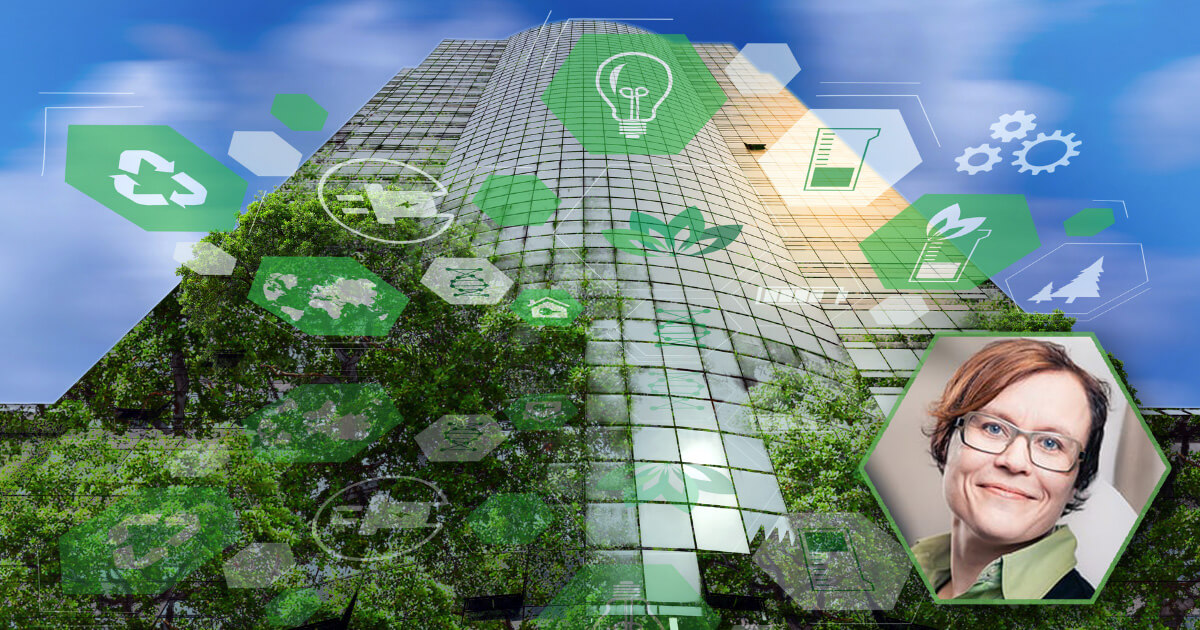An Ongoing Business Strategy, Not Just ‘Of The Moment’

Next week’s MindMix 2021 program (April 22-23) will be kicked off by a keynote by Saara Taalas, IKEA Professor at Linnaeus University Business School in Sweden, who will discuss “Consumer Trends and Sustainability as a Business Model.” She’ll explore how sustainability trends can be used in successful business transformations, such as IKEA’s.
Saara has been following the digital transformations across media and creative industries since 2004. She also has worked as a senior adviser on copyright and creative economy for four European Commission DG’s, the Finnish ministries of Labor, Economy and Industry, and Fortune 500 companies like Royal Caribbean Cruises Newbuilding.
The theme of MindMix 2021 is “Sustainability: A Strategic Roadmap for Brands & Licensing” — Click here for more information and to register — and we asked Saara for some of her thoughts.
What does the word “sustainable” mean to consumers, and is that changing?
Consumer-citizens’ concerns have shifted from what is ultimately sustainable to concerns of how becoming sustainable could feel and look like. This shift from viewing something as an end state of being to something of a processes of becoming is a significant change. The mad, the stupid and the morally degenerate consumer-subjects are still often found lingering between the lines of concluding sections of research reports into sustainable consumption.
Either consumers are left to carry the burden to make sustainability happen by willing to pay more and expect to consume less, or that they are hopelessly ignorant. This is often expressed in terms of ‘value-action gap’ which is connected to consumer attitudes being very much concerned about sustainability issues while these attitudes seldom seem to materialize into action when it comes to making the move to more sustainable consumption patterns.
Then again, it is rather unclear what sustainability in consumption in the time of long global value chains and networks might look like. We need to find more emphatic understanding of what challenges consumer-citizens face and what gives a more complete picture of how everyday enfolds. Most of us would like to do more, but we have more problems than solutions and there are no simple solutions available.
What is the biggest hurdle that companies must overcome in establishing sustainable practices? What can we learn from companies that manage change well?
We are used to thinking of everyday life in organizations in terms of repetitive practices, routines and processes that make things run smoothly and effectively. The ongoing pandemic has shown us another side of everyday. Everyday as an accomplishment that is fragile and not at all as robust as our routines may appear. The new situation has wrecked our everyday work practices showing also our incredible ability to adapt and think again, our everyday creativity. Practices might need to adapt continuously and we need to accept that this is permanently shifting part of operations with sustainability goals that no single company owns alone.
My former doctoral student Mathias Karlsson suggests in his extensive study of IKEA that this work relating to becoming sustainable is a quest of infinitely demanding entrepreneurship.
What we know from companies that take sustainability practices as a quest is that they do not claim to have solved the entire puzzle. For example, IKEA has been committed to sustainability as part of their next generation for a decade on all levels and it is not done.
This is like not just another strategic goal to reach, it is a demanding and humbling call to action. Systemic challenges of sustainability are not solved by single systems owned by any single actors. In a company it is living with multiple contradictions. IKEA is a good example of company that employs these contradictions to fuel innovation in products, practices, and the way they organize their business.
What can we learn from companies that manage change well?
Do not get me wrong, there are radically green companies committed to entirely new technologies, business practices and/or models. I just want to lift examples that they are not entirely alone. What I am suggesting is that we would pay attention not only to the big practices of doing business differently but also to the aspect of becoming sustainable. Joining consumer-citizens in their everyday struggles, and sharing the uncharted journey of becoming sustainable might help us take next steps.
“So great, how do we get there by next week?”, is what you might ask next. I suggest we pay attention to the atmospheres that surround sustainability issues. This might sound a bit farfetched or frivolous at first, but companies that consumer-citizens are interested in seem to have managed to create atmospheres of hope and spirit of becoming livable around their offering and operations. Now what this is and can this be done by design to join the consumer-citizens in their quest of becoming is what I am asking in my presentation at MindMix.




